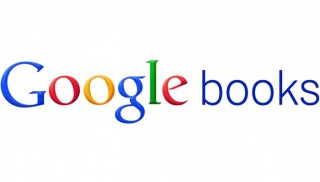November 15, 2013
Google defeats Author’s Guild in page-scanning suit; Author’s Guild vows to fight for another eight years because why not?
by Alex Shephard
 Yesterday, Google won the latest battle in its long, long legal war with the Author’s Guild, which accuses the tech giant of illegally making millions of books available for free online. The Author’s Guild first sued Google in
Yesterday, Google won the latest battle in its long, long legal war with the Author’s Guild, which accuses the tech giant of illegally making millions of books available for free online. The Author’s Guild first sued Google in 1905 2005.
In a piece praising the decision as “a decisive victory for Google, copyright’s fair use doctrine and online innovation,” The Washington Post‘s Timothy B. Lee provided this overview of Google’s own take on the Library of Alexandria (if, of course, the Library of Alexandria consisted of snippets of books, which it didn’t):
When Google started work on its book search engine a decade ago, the company realized that getting the approval of copyright holders would be a logistical nightmare. Not only would major publishers likely demand high fees for permission to scan their books, but for many older works, it would be difficult to even figure out who the appropriate copyright holder was. So Google took a gamble, scanning library books without seeking copyright holders’ permission and relying on copyright’s fair use doctrine as a justification.
On Thursday, U.S. Circuit Judge Denny Chin accepted Google’s fair use argument and described Google’s efforts as being “transformative.” According to Reuters, Chin felt that Google “gave the books a new purpose or character, and could be expected to boost rather than reduce book sales.”
The Author’s Guild had argued that consumers could assemble entire books from the short snippets that Google posts in search results, but Google appears to have anticipated this argument: the company excludes 10% of each text, theoretically making such a silly, time-consuming endeavor impossible.
For Chin, “fair use” applies because Google allows readers to discover books they might not normally be able to find, but only allows them to read a small portion of these books—as opposed to, say, Napster, which made entire songs and albums available for free, Google merely whets consumers’ appetites. “Google Books digitizes books and transforms expressive text into a comprehensive word index that helps readers, scholars, researchers, and others find books,” he wrote. “Google Books does not supersede or supplant books because it is not a tool to be used to read books. For Chin, this service isn’t just a service to publishers, it’s a service for humanity at large: “In my view, Google Books provide significant public benefits. Indeed, all society benefits.”According to Chin, Google also benefits the books themselves by giving “new life” to “out-of-print and old books that have been forgotten in the bowels of libraries,” which is a gross.
This decision could also be seen in a different light: as an addition to the growing body of intellectual-property case law that incentivizes successful tech and media companies to steal first—or aggregate, or whatever—and answer questions later. It didn’t work for Napster. But ever since, the tide has been shifting. YouTube, Pandora, and many others have built big businesses relying at least in part on other people’s intellectual property. When legal challenges have arisen, they’ve been able to adjust and defend themselves in court, and come out the other side a strong company standing on solid legal ground…
This is not necessarily a bad thing. Broad interpretations of fair use allow for innovations that benefit consumers… But notice I said that the system today allows “successful” tech and media companies to benfit from fair-use provisions. The troubling part is that it’s the little guys—the geeks, the academics, the bloggers, theindividuals who are just trying to do something fun—who lose, because they can’t afford to fight an eight-year court battle like Google can.
The trick, it seems, is to steal so aggressively and profit so much that by the time the lawsuits hit, you’re rich enough to fend them off.
The Author’s Guild has vowed to appeal the ruling. Speaking to Publishers Weekly, Authors Guild executive director Paul Aiken said, “This case presents a fundamental challenge to copyright that merits review by a higher court. Google made unauthorized digital editions of nearly all of the world’s valuable copyright-protected literature and profits from displaying those works. In our view, such mass digitization and exploitation far exceeds the bounds of the fair use defense.” At MobyLives, we’re ecstatic to be able to cover this case for eight more years.
Alex Shephard is the director of digital media for Melville House, and a former bookseller.